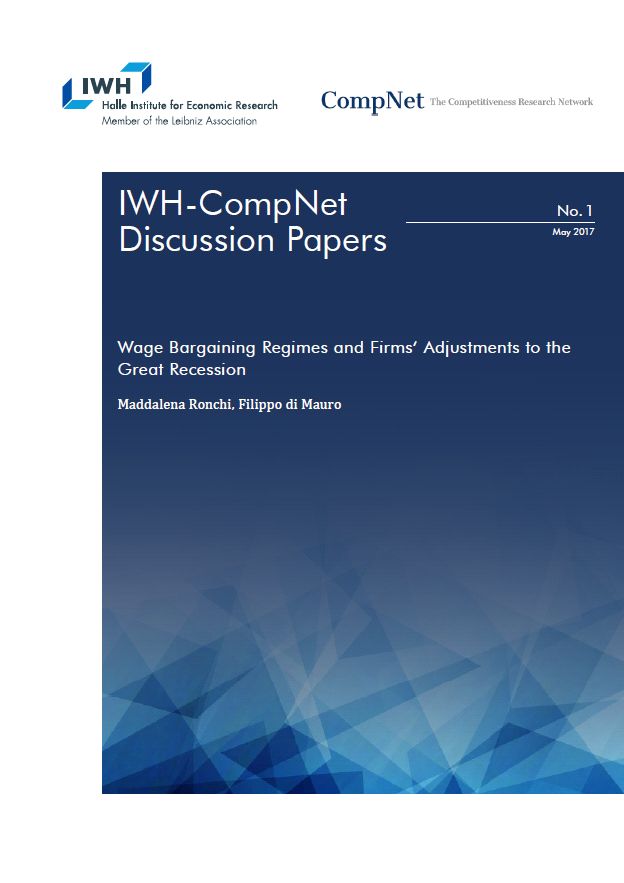
Wage Bargaining Regimes and Firms‘ Adjustments to the Great Recession
The paper aims at investigating to what extent wage negotiation set-ups have shaped up firms’ response to the Great Recession, taking a firm-level cross-country perspective. We contribute to the literature by building a new micro-distributed database which merges data related to wage bargaining institutions (Wage Dynamic Network, WDN) with data on firm productivity and other relevant firm characteristics (CompNet). We use the database to study how firms reacted to the Great Recession in terms of variation in profits, wages, and employment. The paper shows that, in line with the theoretical predictions, centralized bargaining systems – as opposed to decentralized/firm level based ones – were accompanied by stronger downward wage rigidity, as well as cuts in employment and profits.




